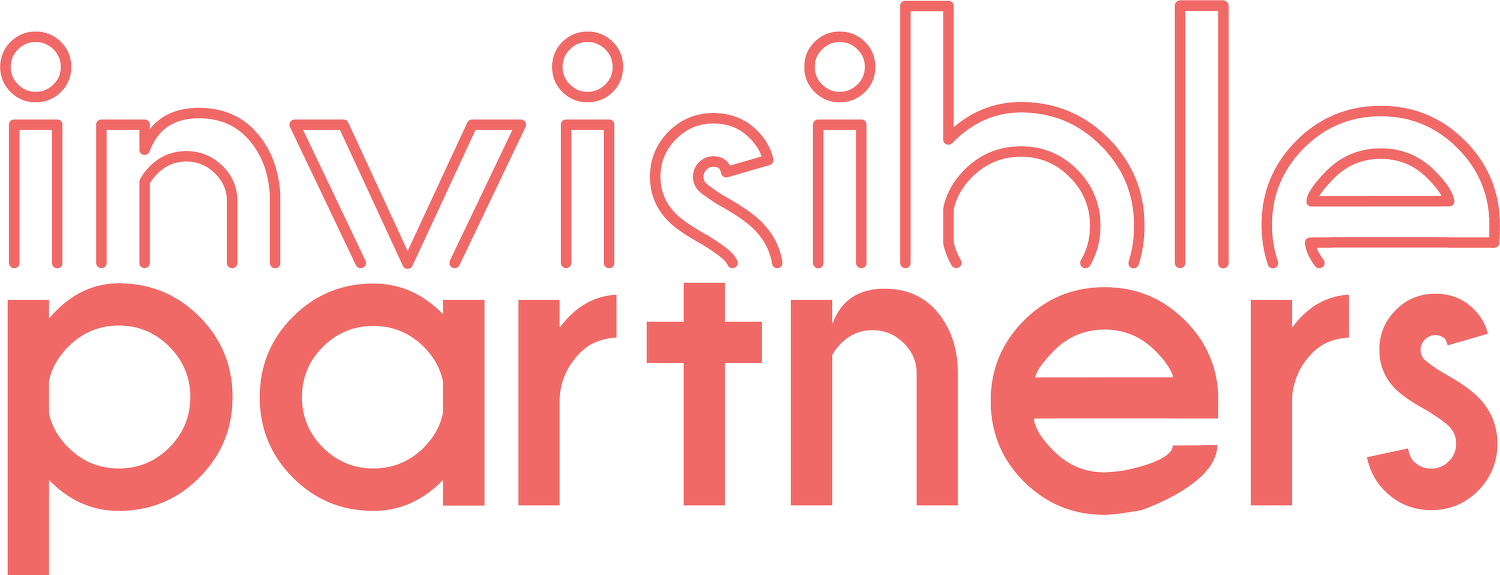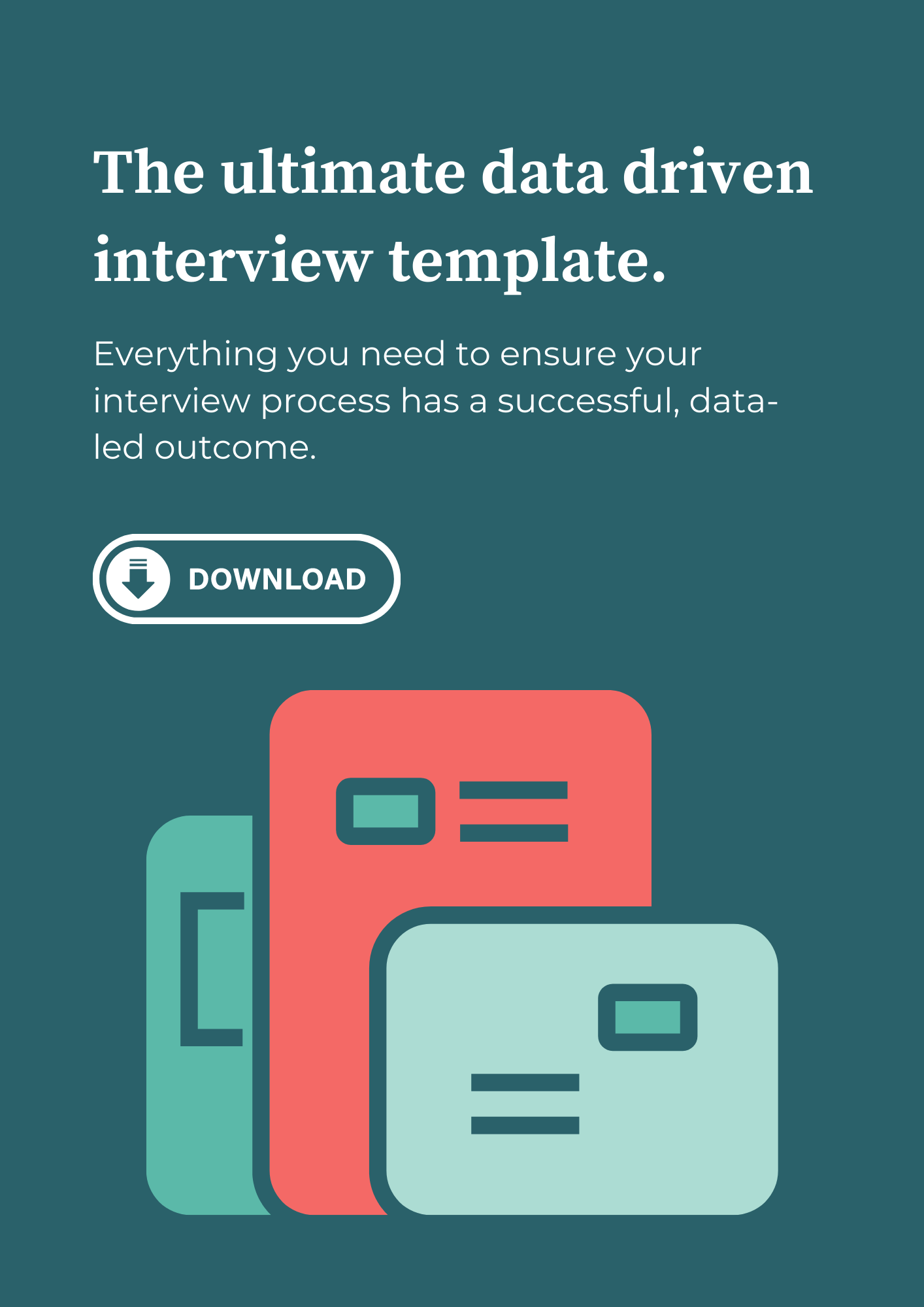The ultimate data driven interview guide.
You know that frustrating situation where 3 different decision makers are backing 3 different candidates based on feelings coming from 3 different guts?
We all know it well.
By introducing a more data driven interview process you will easily identify the best person for the role, not just the winner from a game of scissor paper rock…
1. The role of the interview
The interview is a critical component of the hiring process as it provides an opportunity for you to assess the candidate's skills and motivation needed to succeed in the role, and if they’ll be a good fit within the company ecosystem.
Skill
What knowledge, qualifications or specific skills are required to do the job?
Eg; Specific coding language, prior experience managing a P&L, a mandatory professional / clinical qualification, numerical proficiency, remote leadership etc.
Motivation
What are the individuals drivers and are they in line with the scope of the role, i.e are both the organisation’s and the individual’s ambitions aligned?
Things to consider here would be career aspirations, mandate and drive.
Fit
What personal attributes, influencing and communication style works best in the team and company?
Eg; Is a consultative and considered approach best or is direct and outspoken more effective.
A quick note about ‘Culture Fit’
Hiring managers may attempt to use “cultural fit” as a more socially acceptable way to decline a candidate based on bias, gut feel or discrimination. Consciously or unconsciously.
By introducing a data led criteria and selection process you will find it easier to flag this happening and you’ll have a solid rebuttal for any kick back.
Check out our recent LinkedIn Live on what Culture Fit means in 2023 and beyond
2. Determining the right interview style for the role
Along with the familiar Standard Interview (which is useful in some cases, but can often feel like a live reading of the CV) here are a few additional styles, and other tools, we advocate adding to your kit.
Phone / Zoom Screen
When you have a large pool of candidates, this is a good place to start to narrow it down quickly. We recommend using a standardised list of questions to allow you to compare apples to apples.
Conversational Interview
This less structured style of interview can often lead to interesting places. The key to a productive conversational interview is to jot down key points that you want to hit so that you don’t waste the opportunity.
Behavioural Interview
Past behavior can be a fairly good indicator on future behavior, so posing scenarios or questions to a candidate to see how they would / have behaved is an interview style which gets real life insights.
Case Study
Nothing beats a real life scenario, giving the candidate an opportunity to put together a considered response. This will enable you to evaluate presentation, influencing skills. Communication and give you valuable insight into how the person thinks, distills information
Role Play
A useful tool if you want to assess how well someone thinks on their feet, particularly useful in contact centre functions, where domain expertise shows how comfortable they are in classic service scenarios. Also useful in a volume hiring setting
Role-based Assessment
Rather than have someone tell you they are highly experienced in XYZ, let them show you. By asking candidates to complete an assessment which is specific to the role, you will be able to see, and rank, their abilities first hand.
Psych Assessment
Not as full on as it sounds. A certified means of figuring out what personality type someone is, which can lead to better understanding what style of management suits them best.
Team Meet + Greet
We often think we can tell pretty quickly if a candidate will fit in with an existing team, but you’d be surprised how often we’re wrong. Hold an in-person or zoom meet and greet with the whole team or just the relevant department and let them make up their own minds. Flipped and reversed, this is also a great way for your candidate to see if they can see themselves as part of the team.
Reference Checks
More than just a fact checking exercise, this can be an opportunity to “phone a friend” at the pointy end of a recruitment process. If there are any uncertainties around a candidate, make sure you ask the reference to fill in the blanks. Along with the usual suspects, we like to ask ”What has been some of the feedback you have received from the candidate’s clients or from their team?” “Would you re-employ them? Why/why not”
3. Deciding who runs and who attends an interview
The decision of who attends an interview is crucial. The purpose of an interview is to gain information from a potential employee, so it's important to make sure that the people who are conducting the interview are qualified to do so.
For a more accurate read on the data which comes out of the interview stage try having the same people in each interview.
5. Making a data led final decision
Download our template and use it in your next recruitment process to ensure a successful, data-led outcome.




